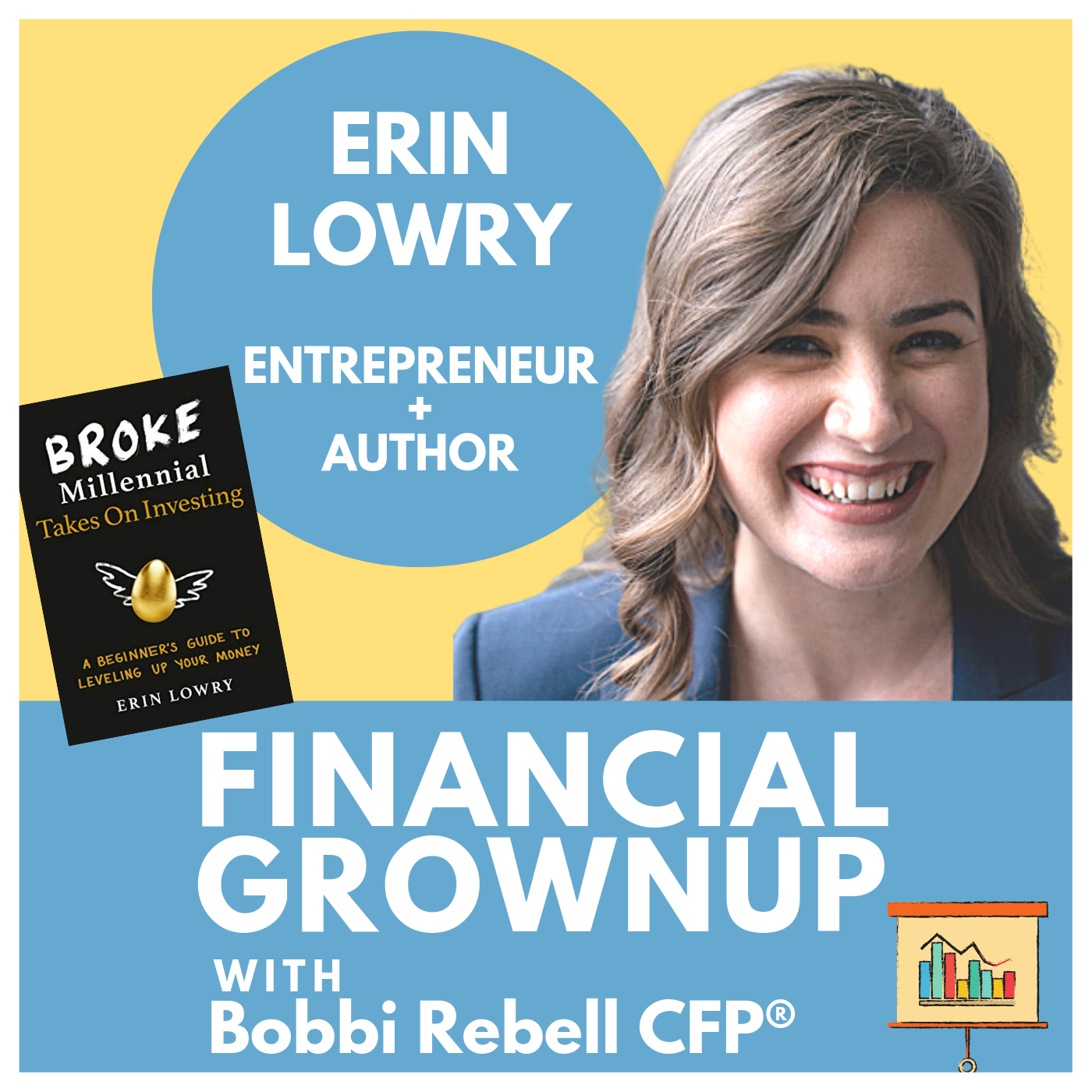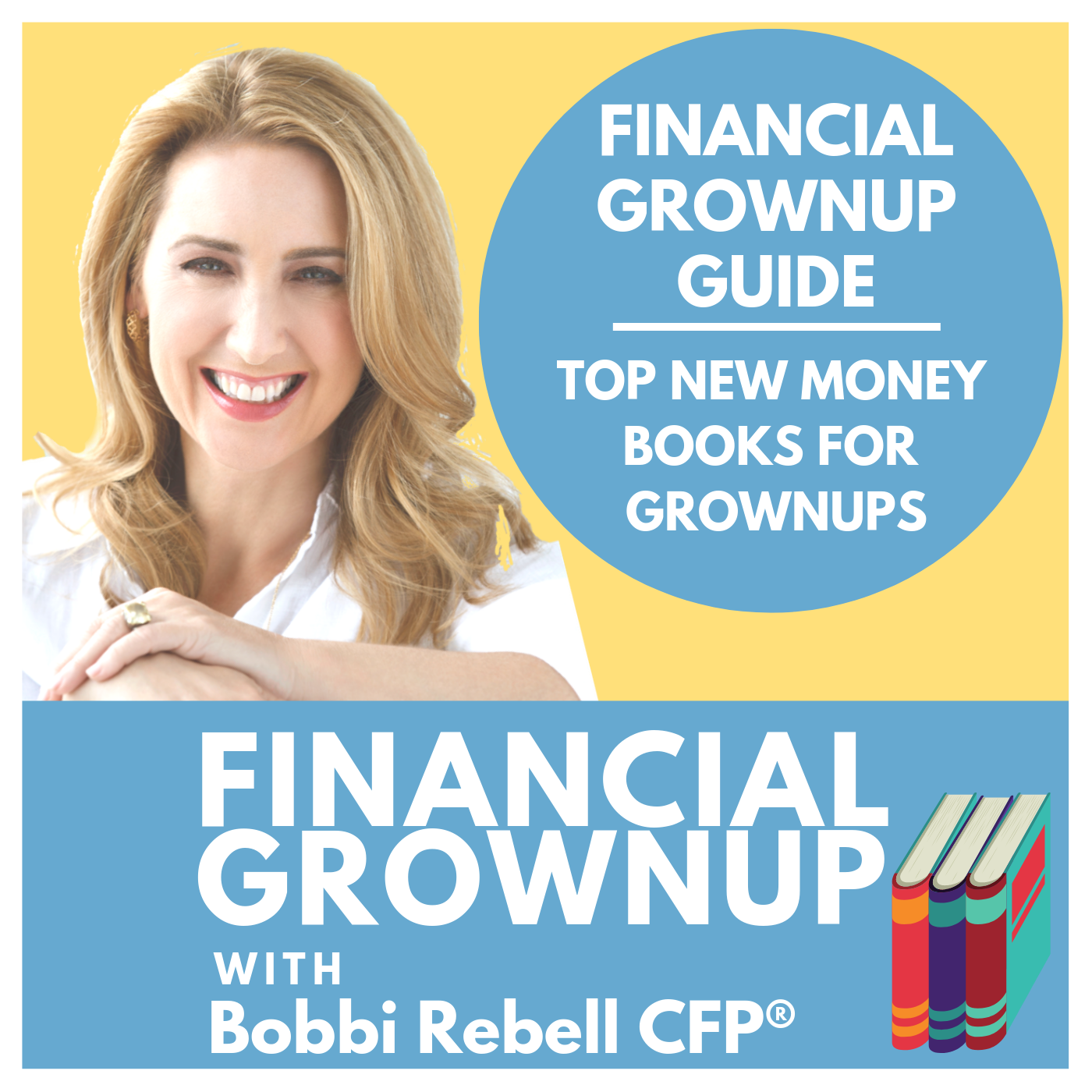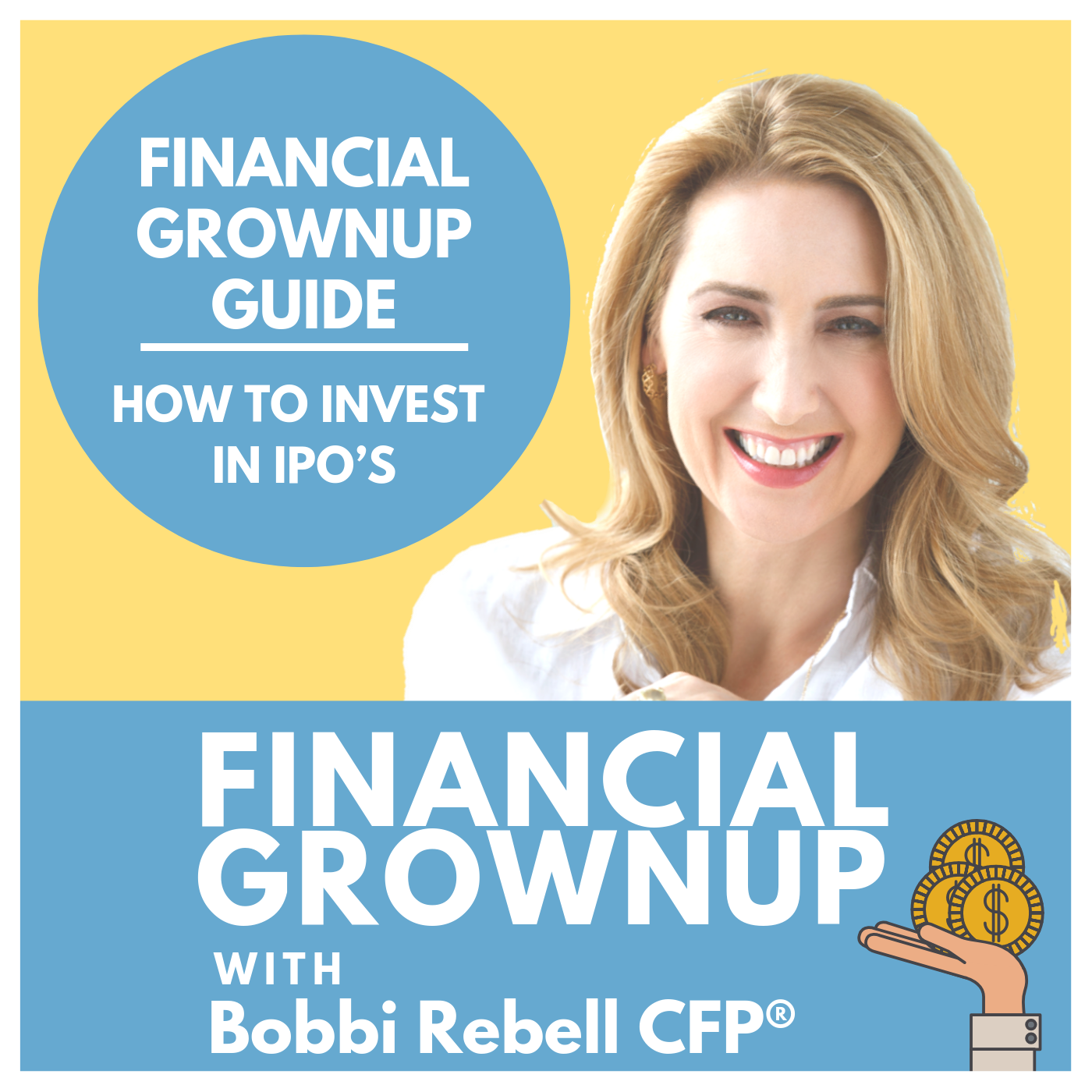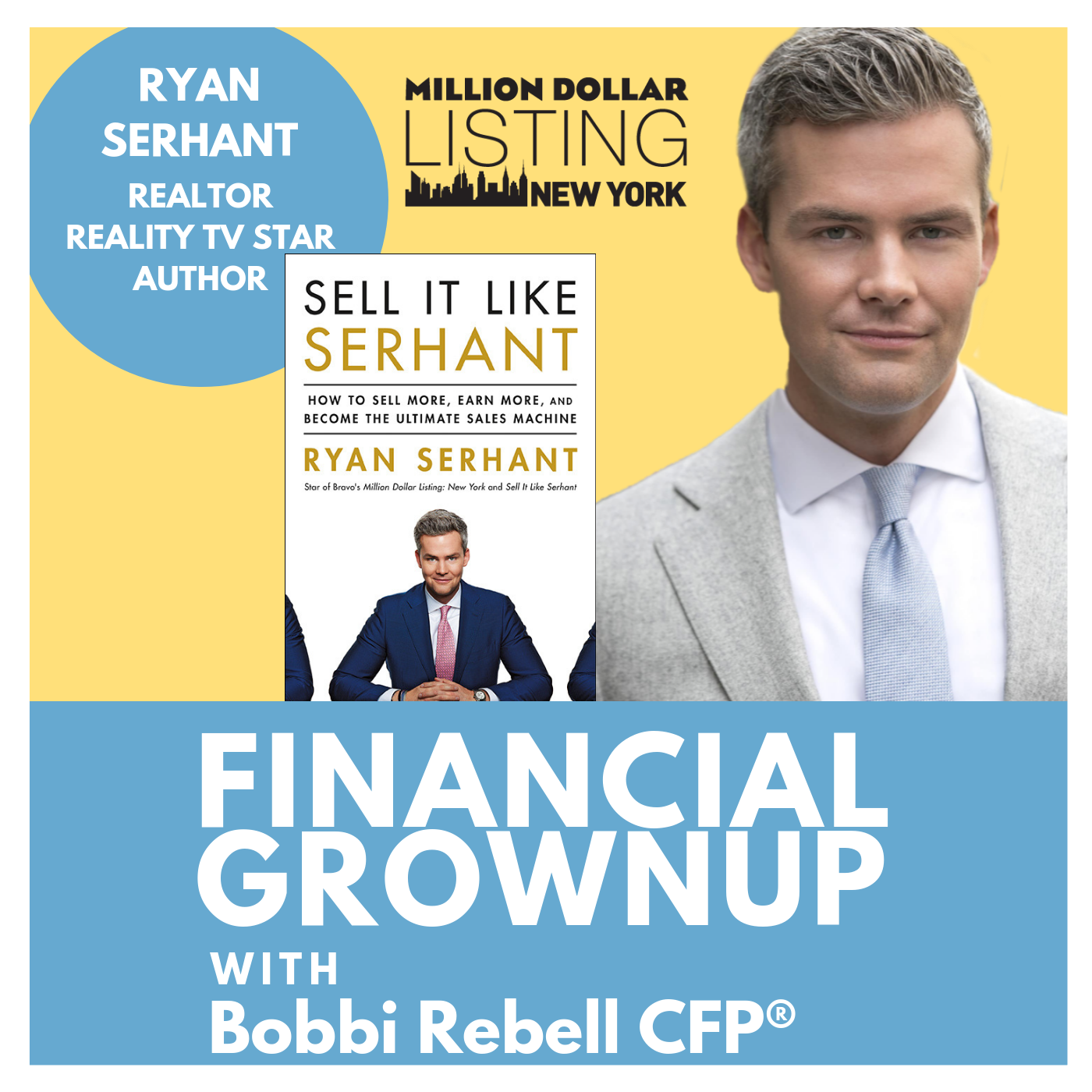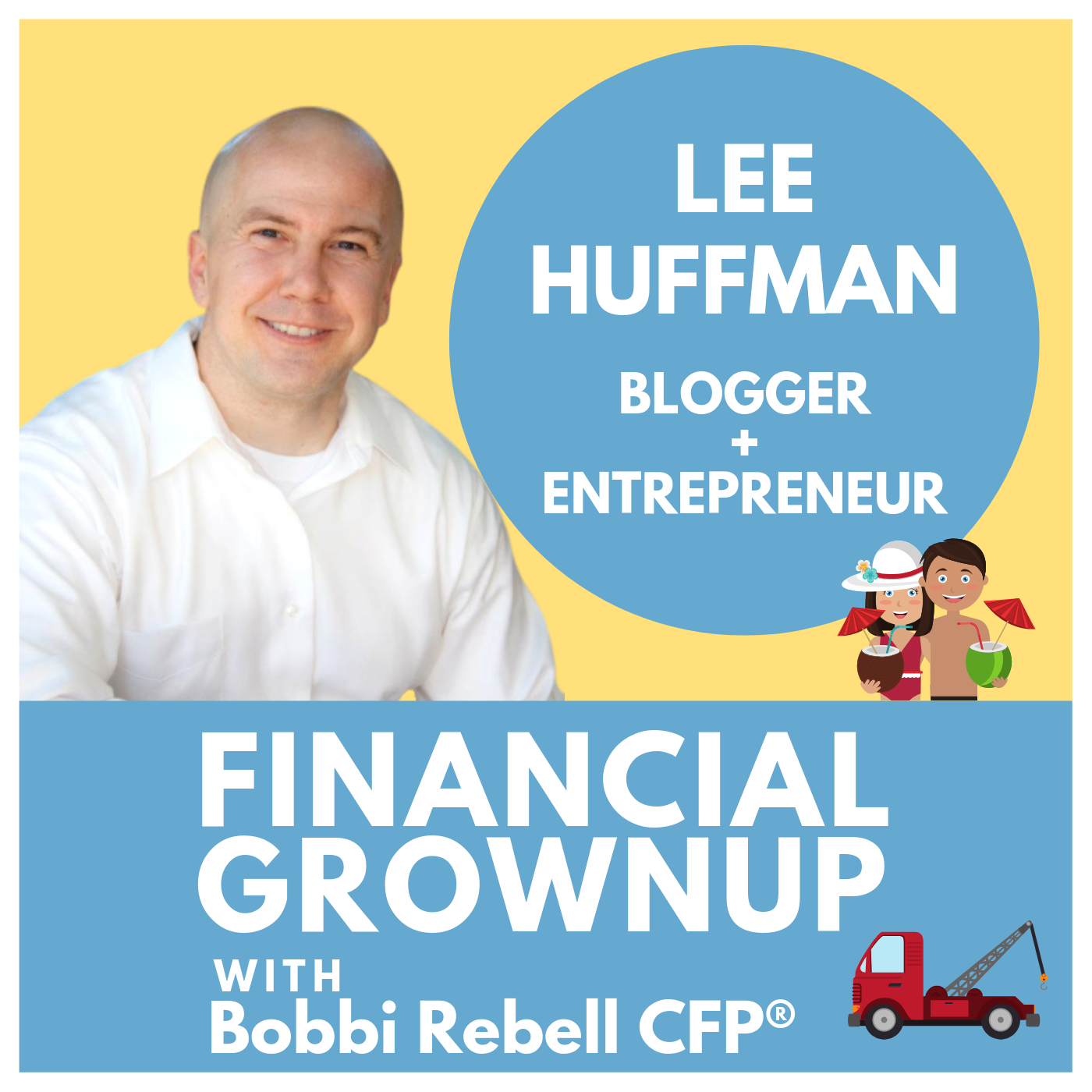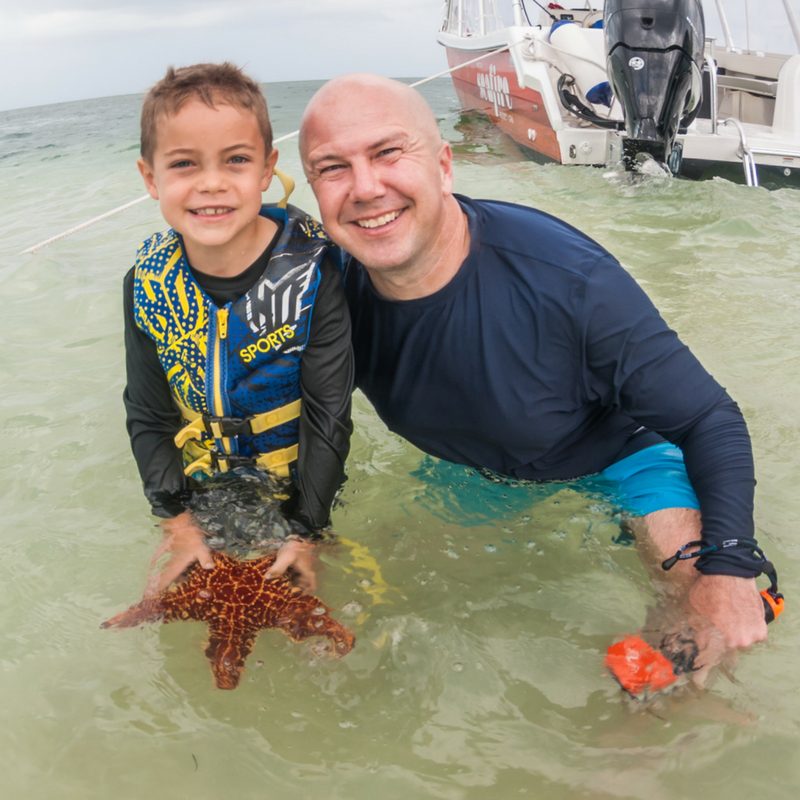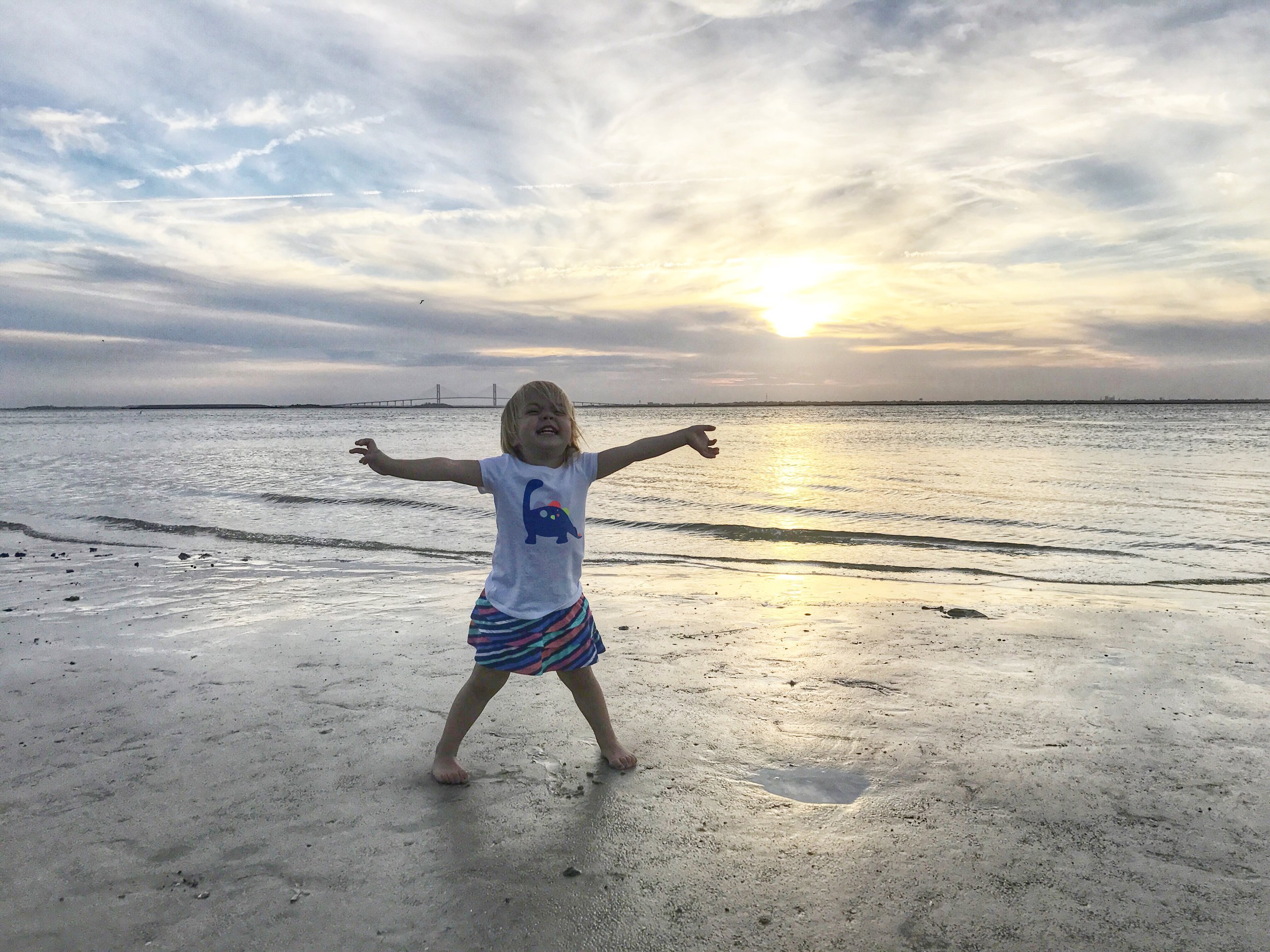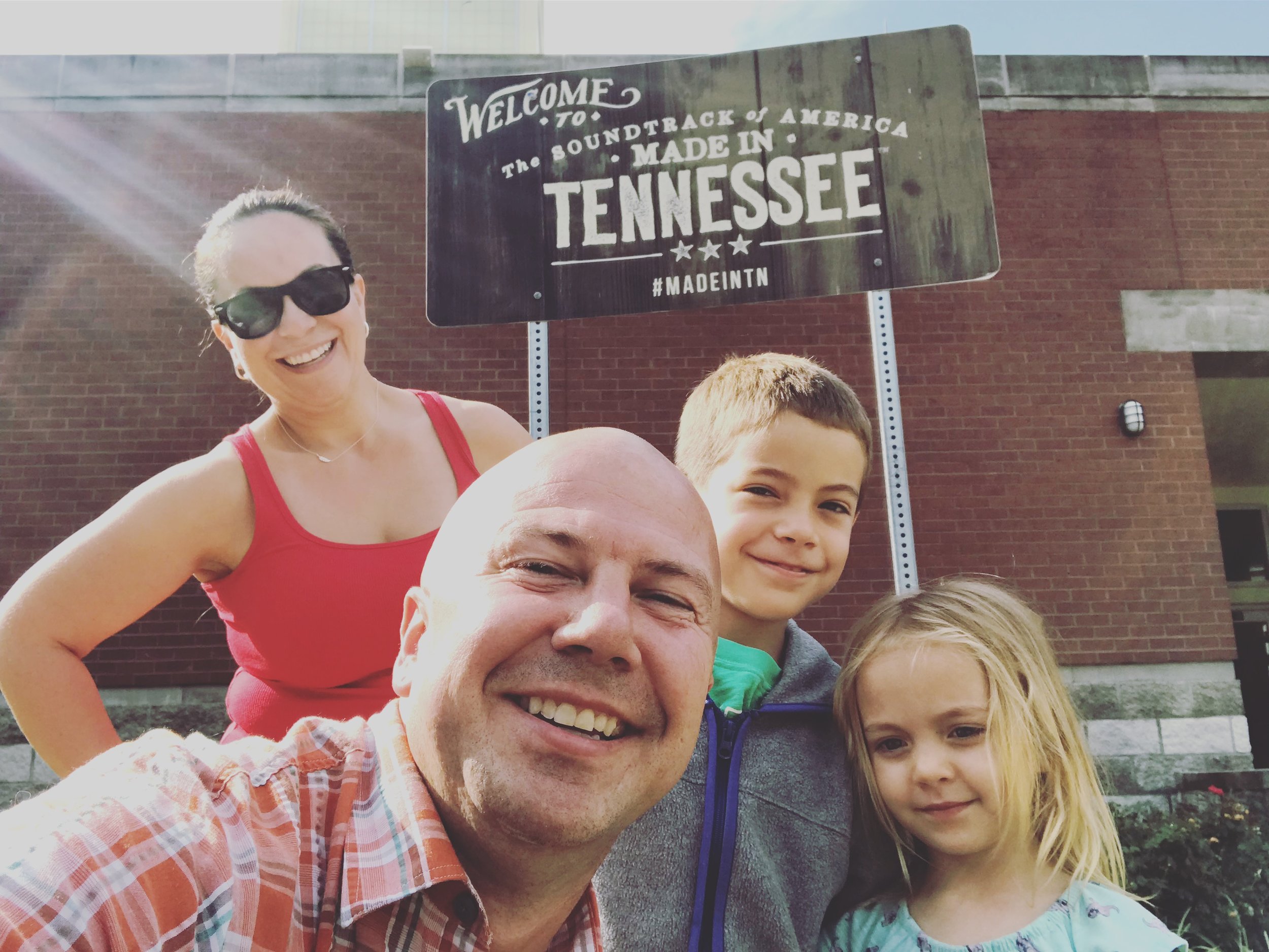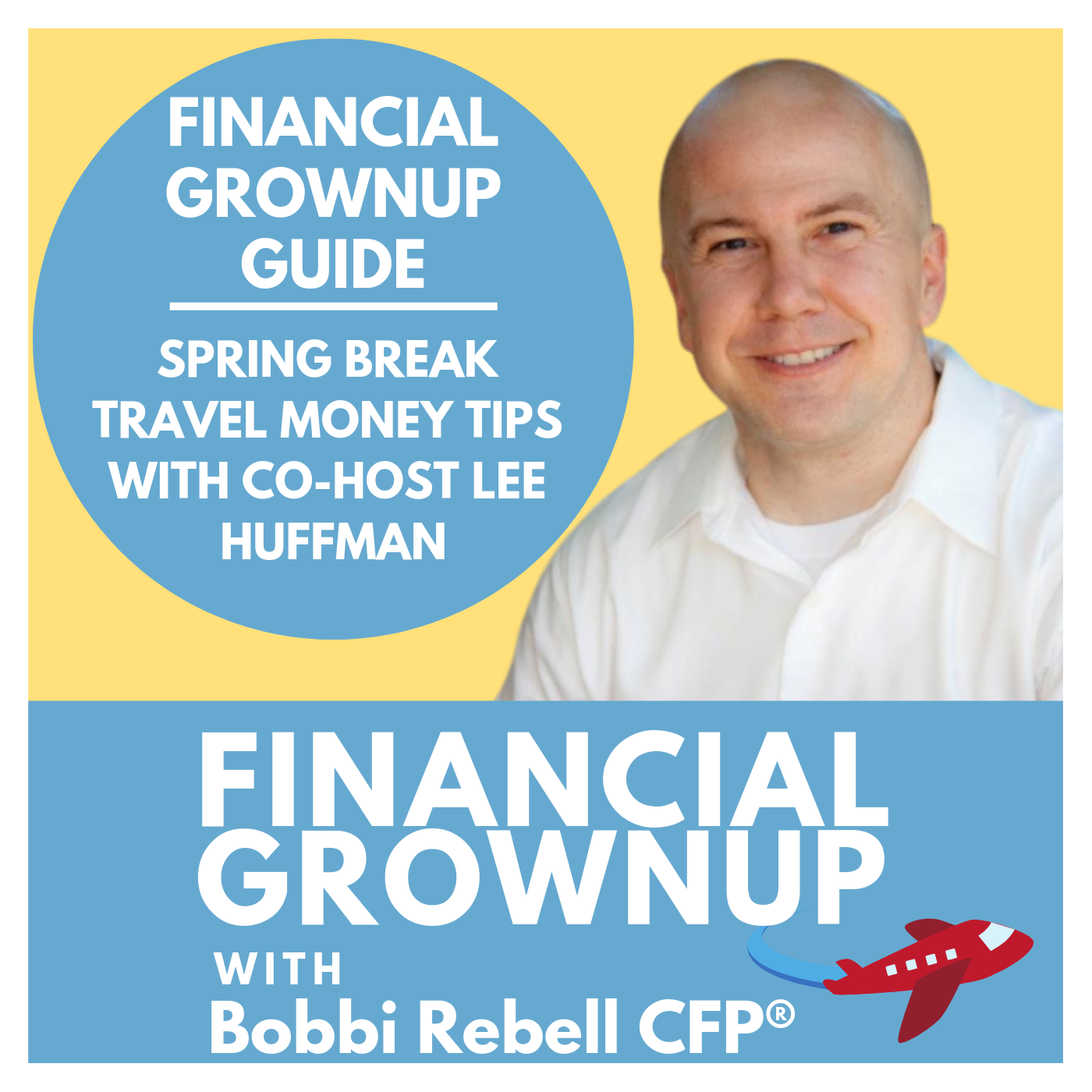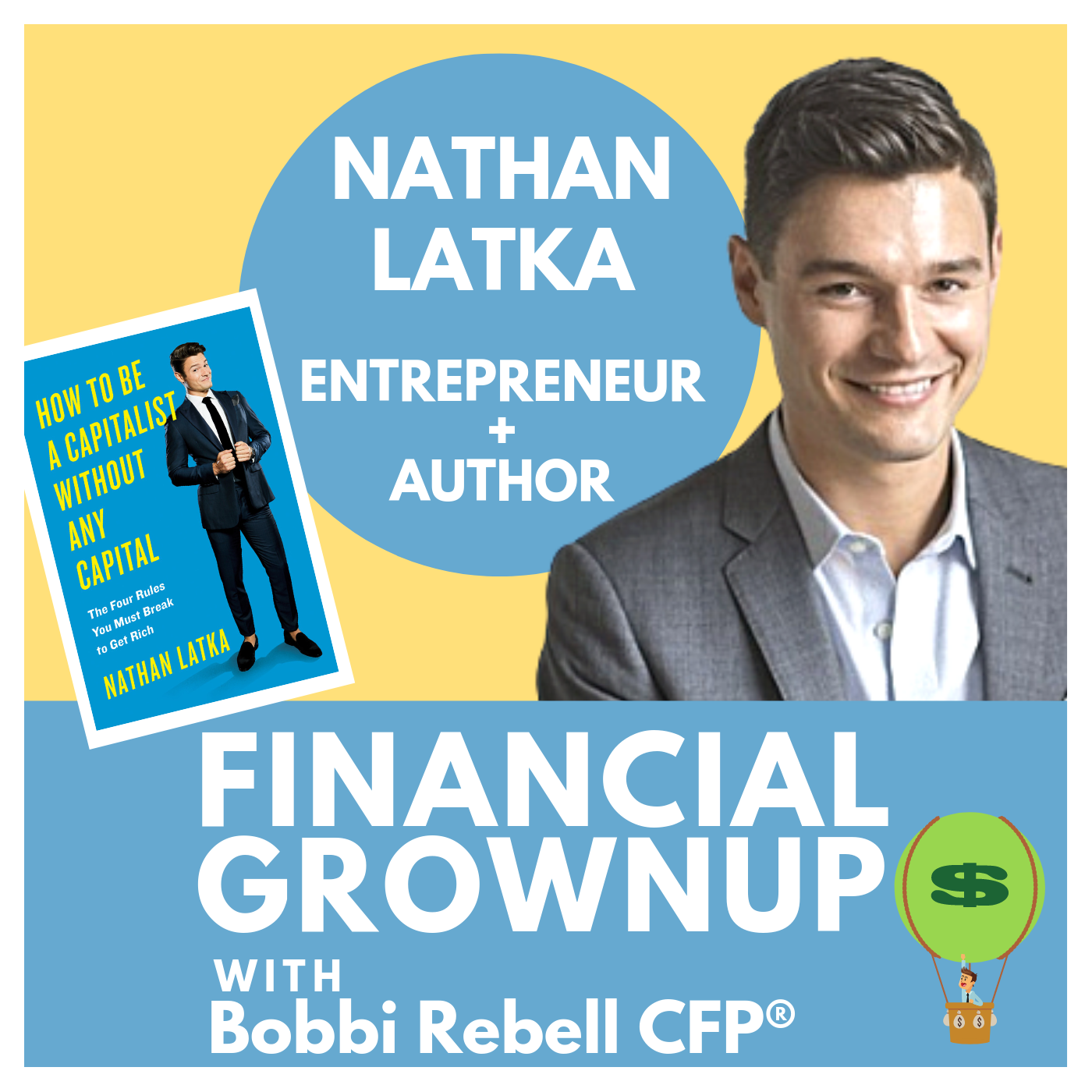Transcription
David Carlson:
And really was the perfect storm where no quarterly estimated tax on the side hustle income, not taken enough out of our regular paychecks and we owed $8,000.
Bobbi Rebell:
You're listening to Financial Grownup with me, certified financial planner, Bobbi Rebell author of How to Be a Financial Grownup. And you know what? Being a grown-up is really hard, especially when it comes to money, but it's okay. We're going to get there together. I'm going to bring you one money story from a financial grownup, one lesson and then my take on how you can make it your own. We got this.
Bobbi Rebell:
Hello financial grownups. That was the voice of David Carlson personal finance expert and now two time author. His first book was Hustle Away Debt. He now has come out with Student Loan Solution. The story he shares with us today though was about a very amateur move that he and his wife made in their younger days, but if we're being honest guys, it's the kind of mistake a lot of us have made, Just saying.
Bobbi Rebell:
Welcome everyone, including our newest listeners. Thank you for checking out the show. I want to know how you heard about us. Please DM me on the socials and say hello on Instagram @BobbiRebell1 and Twitter @BobbiRebell or you can email us at hello@financialgrownup.com.
Bobbi Rebell:
Back to our friend David Carlson. His new book, as I mentioned is called Student Loan Solution: 5 Steps to Take Control of your Student Loans and Financial Life. And he knows a lot about student debt because his efforts to pay that down led to not paying something else. Here is David Carlson.
Bobbi Rebell:
Hey David Carlson, you're at Financial Grownup. Welcome to the podcast.
David Carlson:
Hey Bobbi, thanks for having me.
Bobbi Rebell:
Congratulations on your new book Student Loan Solution. You're a familiar name to many people who follow the personal finance space, who want to learn more about managing their own money and having more money, which is always a good thing because you're a well-known author and speaker. This is not your first book. You also wrote Hustle Away Debt and you were also the founder of Young Adult Money. So it's tax season. We talk a lot about multiple income streams and side hustles. You and your wife are so good at this. Lots of income streams, lots of side hustles. But there is one big caveat when it comes to taxes that you guys discovered, not in the best situation. Tell us your money story, David.
David Carlson:
Yeah, so this kind of dates back a few years ago, my wife and I, our first full year of marriage we were both pretty recent college graduates the past year or two. Just to kind of give some context, my wife was studying for the GRE and working a few part time jobs, so she nannied. She worked a couple of other places as well, so she was working a lot. But the thing that we didn't do was look at how much was being taken out of her paycheck for taxes.
Bobbi Rebell:
How much was being taken out, anything?
David Carlson:
Well with her nannying job, which was the primary income. Yeah, nothing. Which honestly, if you would've just asked, we would've kind of been on top of things, we would have known that and been able to plan around that, but we didn't. So we kind of assumed, oh, maybe they're taking a little bit out of your paycheck to account for that.
David Carlson:
And honestly, like I said, this was first year of marriage, newer college grads, this excuse that everybody uses. But I would say that we were super busy with a lot going on in our lives and we kind of dropped the ball on checking the pay stubs, checking what was being taken out.
Bobbi Rebell:
And you also had side hustles yourself.
David Carlson:
Yeah, that's kind of what made this even worse was that was my first year that I had made significant side hustle. And by significant, I mean more than $100, $200. So a few thousand inside hustle income. Back then it was primarily freelance writing, but also I was working on spreadsheets for some small businesses, which people always kind of find unique. But in my full-time job as an accountant at the time I was working spreadsheets all day. So it was kind of a natural fit.
Bobbi Rebell:
So Ironic, you're working as an accountant, but you're not paying taxes on the side hustle income. So what happened? How did this get discovered and tell me about that conversation and what was the damage?
David Carlson:
Yeah, so we at the end of the year, got everything together, put everything in the TurboTax and saw, hey you owe $8,000 in taxes. And we were like, ah, that can't be right because we were used to throughout college and whatnot, getting some sort of refund and really kind of banking on that. For sure not expecting to pay anything in. So $8,000 and I mean really when you look back at all makes sense. I was claiming one on my W4 for allowances. Really if I would have claimed zero it could have helped cover off on some of the taxes that weren't being withheld from my wife's paychecks. And really it was kind of the perfect storm where no quarterly estimated tax on the side hustle income, not taken enough out of our regular paychecks. And Yeah, we owed $8,000.
Bobbi Rebell:
How did you feel? What was the conversation like?
David Carlson:
There may have been tear shed, but thankfully we had set aside some money to purchase a new vehicle. But again that money was for the vehicle purchase so that got wiped out and cover the taxes, which was unfortunate because you kind of feel like you made all this progress on saving. Again fresh out of college. So finally making some decent income but got wiped out.
Bobbi Rebell:
So what is the lesson from that story for our listeners?
David Carlson:
The biggest lesson, just kind of broader terms was even if you're busy, set aside 30 minutes, an hour, really anytime you can put towards your finances and taxes. Something that people, I think intentionally and that that time myself don't think about until it comes tax time. But if you do a little bit of planning halfway through the year, look at your pay stubs, how much has been taken out, you need to have more withheld, what adjustments you need to make. For me personally, now I have not only zero allowances claim, but I also have additional money withheld each paycheck just to count for side hustle income. My wife does the same thing, so you can set yourself up to not owe anything if you don't want to and you just have to know your personality. Are you somebody who kind of banks on that refund and looks forward to it and it's really part of your financial plan or are you somebody who wants to pay as little as possible, than maybe ongoing $1,000 isn't a big deal.
Bobbi Rebell:
I think that's a really interesting point because people approached taxes and the concept of refunds very differently this year in 2019. We're grappling with a new tax system for the 2018 tax law change and a lot of people are not getting refunds, but in some cases it's not that they're paying more taxes. Some people are of course, but some people, it's just that their withholding was not adjusted properly, was over adjusted, let's say, and they were being given too much money in their paycheck for take home pay, not withholding enough. So it appears and feels like they're paying more in taxes. So a lot of this is psychological, right?
David Carlson:
Yeah. what I've seen is people in their 20s for the most part, they tend to do better if they do get that refund versus having to pay in just because finances are so tight and there's always something else that money can go towards. So even though you're giving the government kind of a interest free loan you could say, especially when you're starting out, it might make sense to kind of overshoot it and get that refund versus trying to get nothing back.
Bobbi Rebell:
Let's move on to your money tip because this is really in your area of specialty having to do with student loans and the whole idea of how to manage them after you graduate. How is the best way not only to be paying them off but to finance the loan that you do have because people talk a lot about refinancing. It's not a one shot deal necessarily, right?
David Carlson:
Yeah, and I think a lot of people when they do refinance student loans in particular, you go through the process, you find the company that are going to refinance with. You find a rate that looks good to you, so you refinance once and you kind of set it and forget it. But one opportunity that people have, and I think this is important because private student loans, which you either have or you got through refinancing, don't have as many advantages as federal student loans. So I think this is a great thing for people who do have those private loans to think about. You don't have to just refinance once. You can look six, 12 months down the road after refinancing and see is there any other company out there that's going to offer me a better rate? And as long as there is no origination fees with that new loan, there's no reason not to take advantage of it. And right now there's so many companies that are looking to refinance student loans and build up their balance sheet of student loans. If you look enough, you most likely will find a better rate, especially if your credit score has improved over time, your credit history is solid, that's how you're going to be able to unlock some of those better opportunities.
Bobbi Rebell:
You mentioned the origination fee. Can you explain what that is and is that something that you can negotiate if there is one, can you say to them, well, I'm only going to switch to you if you can give me some help with that.
David Carlson:
Yeah, that's not common with the student loan refinancing because again, I think a lot of banks are not desperate, but they really want to get into the student loan refinance game.
Bobbi Rebell:
What's not common is it's not common to have origination fees.
David Carlson:
Yeah. It's not common to have one because it's just a disincentive for them to go with you. And again, like if you search on Google student loan refinance, the first five or six results are all going to be ads because there's so many companies trying to get in front of you so that you'll refinance with them. So it's not common. But I did want to point out if there are fees that come with setting up a new way.
Bobbi Rebell:
Avoid them.
David Carlson:
Yeah. Yup.
Bobbi Rebell:
Right. And is there any other strategy that you could use to make yourself more desirable? Obviously your credit score could get better as you move away from school and into your career. Other things that can make you a better candidate for the best refinancing.
David Carlson:
Yeah, it's they'll take a look at your income. So income and credit score are the most important. And credit score really being the most important because if you have a high credit score, it means that you are a reliable person. More likely than not, you're going to continue to make your payments on time. So I'd say I'd really stress the credit score aspect of that. Make sure that you're doing what you can to improve that score, making your payments on time. Yeah, and I guess one way to get even a lower rate is to have a cosigner, but typically I think it's best to kind of keep your student loans separate when possible. And obviously this isn't just a tip for student loans. You can also use personal loans as an example where if you have one that's going to take you five to 10 years to pay off for whatever reason, it might make sense to keep looking for that better rate every six to 12 months.
Bobbi Rebell:
Just some of the great advice in your new book, Student Loan Solution: 5 Steps to Take Control of your Student Loans. By the way, there's a forward in there, everyone from Financial Grownup guest Kristin Wong, she's also the author of Get Money. We will link to her episode and you also have endorsements from some notable people including our friend Shannah Compton Game from Millennial Money Podcast. You also have Jason Vitek who wrote You Only Live Once and [inaudible 00:12:09] who is the founder of [inaudible 00:12:10]. And you know what? Yours truly, I also endorsed the book. I think it's a really wonderful tool for everybody. Tell us more about where people can find more about you and the book.
David Carlson:
Yeah, so you can go on Amazon to check out the books. So just search student loan solution. We also have a book website but the URLs is little bit long studentloansolutionbook.com because I was too cheap to buy StudentLoanSolution.com.
Bobbi Rebell:
We can remember that David. We'll find you. We'll link to it in our show notes don't worry.
David Carlson:
And then my website as Bobbi mentioned earlier, youngadultmoney.com personal finance blog for those in their 20s and 30s. And then I'm on Twitter @DavidCarlson1 and then Instagram David_Carlson.
Bobbi Rebell:
Congratulations again David. Thank you so much.
David Carlson:
Thank you for having me.
Bobbi Rebell:
Let's get to it my friends, Financial Grownup tip number one. If you find yourself like David and his wife owing money on taxes and that's happening to a lot of us, if alike them, you do not have money set aside. There are solutions. The most important thing is to still file your tax return. If you ignore this problem, trust me it is not going away. But what you need to remember is believe it or not, the IRS, the government, as with any lender, anyone you owe money to is to some degree your partner, they want you to pay. And they will work with you depending on the solution that you work out with them you may owe penalties and you may owe interest but you're not going to go to jail if you're cooperating with them and working out a solution, it's going to be okay.
Bobbi Rebell:
You can contact the IRS to work things out. The phone number is 1-800-829-1040. We will also leave a link in the show notes to the irs.gov website and to the pages that you need to get to in order to figure out what kind of payment plan or other solution you can work out with the IRS if you owe money. It's all explained there. It's very well laid out. Don't forget to adjust your withholding for this year, 2019 so you don't face a similar situation next year.
Bobbi Rebell:
Financial grownup tip number two, stay on top of the news when it comes to student loans. Unfortunately this has become a political issue and some programs that were put into effect by previous administrations could be changed under the Trump presidency, so stay informed. I will leave some links to recent articles about proposed changes already in motion in some cases in the show notes and you can find the show notes always at bobbyrebell.com/financialgrownuppodcast.
Bobbi Rebell:
If you don't see the episode that you were looking for just by scrolling down, use the search bar on the upper right corner to search by the guest's name or any other keyword. For example, you could search in this case for student loan or taxes. I also want to mention that David has a number of companion materials to his book that you can access on his website at studentloansolutionbook.com and he also has some very cool freebies. And speaking of freebies, this podcast is free. The only payment that I ask of you guys is that you help us grow the show and that means first of all just making sure that you're subscribed so that the show auto downloads in your feed and you don't miss any episodes.
Bobbi Rebell:
If you have a free moment, reviews are so appreciated. They really mean a lot. And when people go to decide whether they want to subscribe to the show, they see good reviews and hopefully it motivates them to subscribe. And of course, the most powerful thing and the most appreciated thing is when you share it with friends who you think would also enjoy the podcast and maybe in some cases even show them what a podcast is, what the app is on their phone, and how to subscribe and download the episodes.
Bobbi Rebell:
Big thanks to David Carlson, author of the new book Student Loan Solution for helping us all get one step closer to being Financial Grownups. Financial Grownup with Bobby rebel is edited and produced by Steve Stewart and is a BRK Media production.



